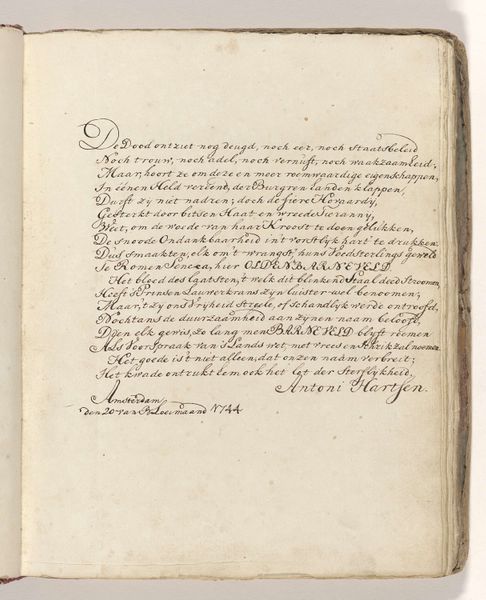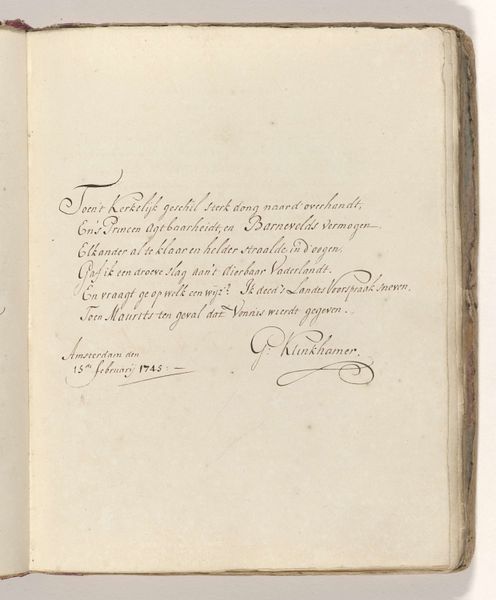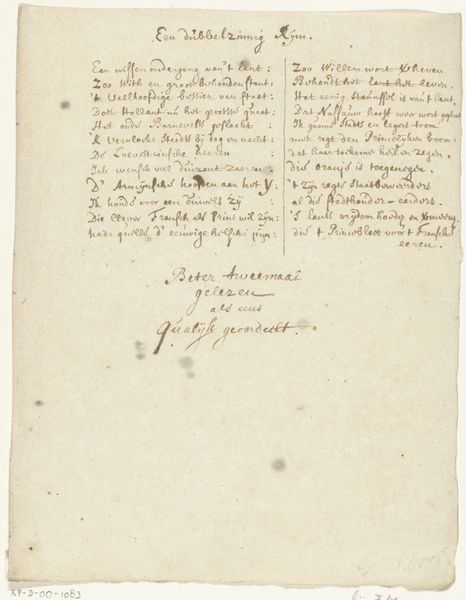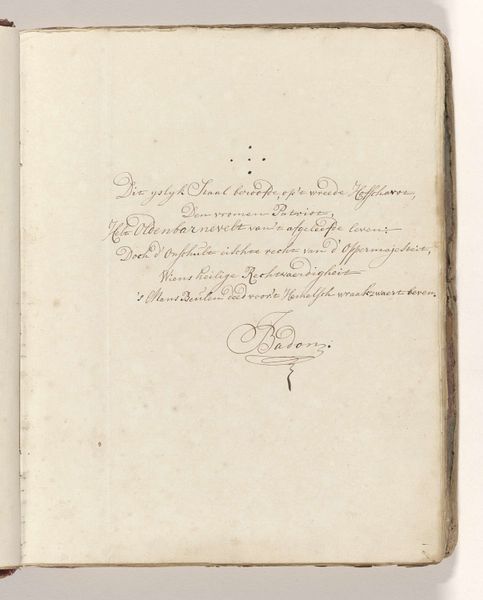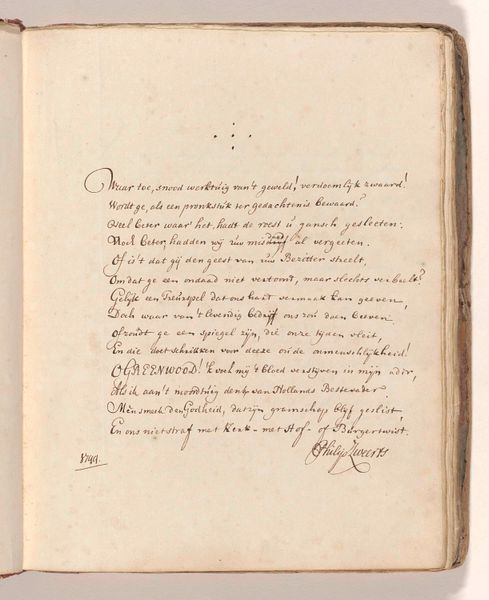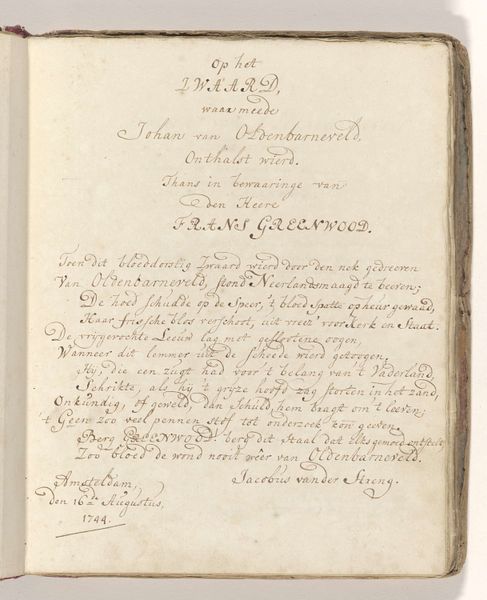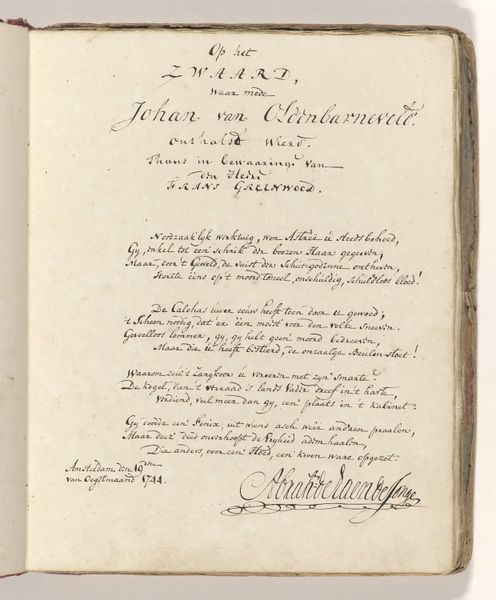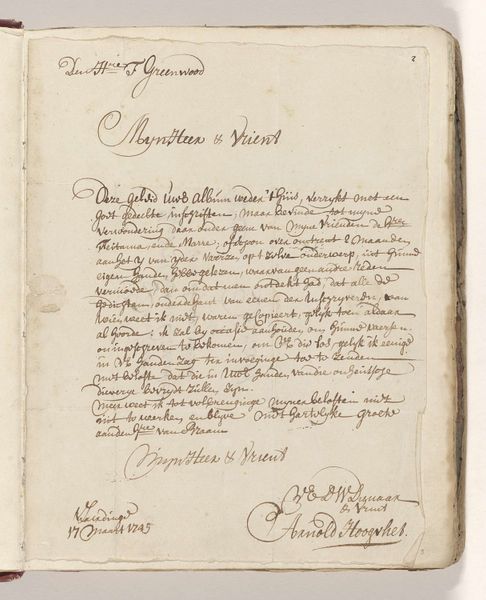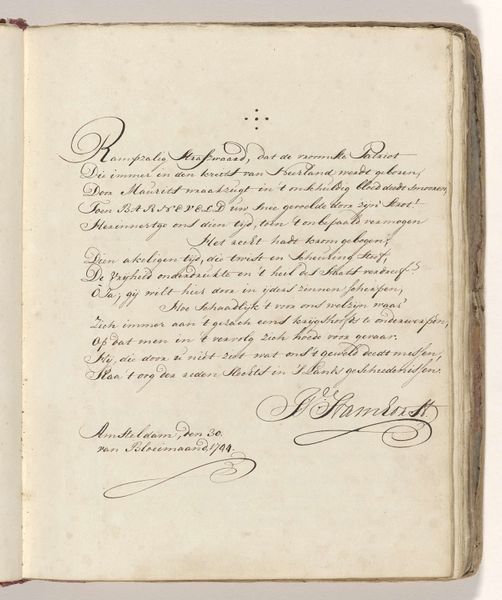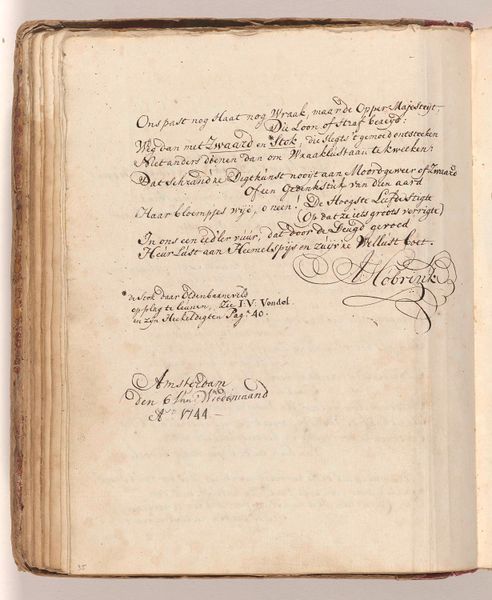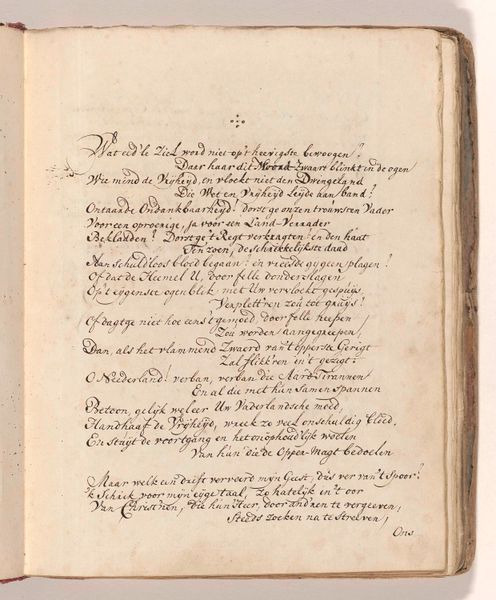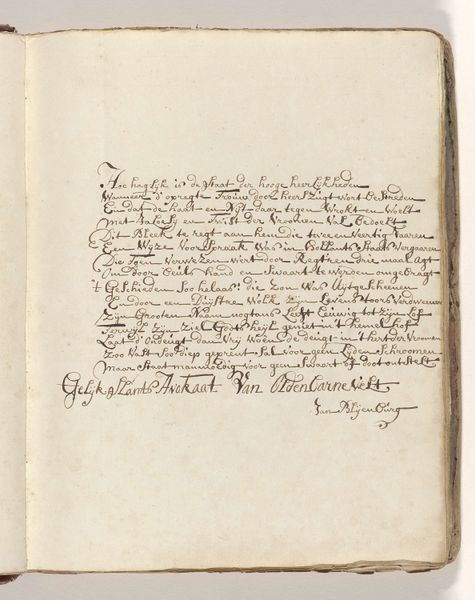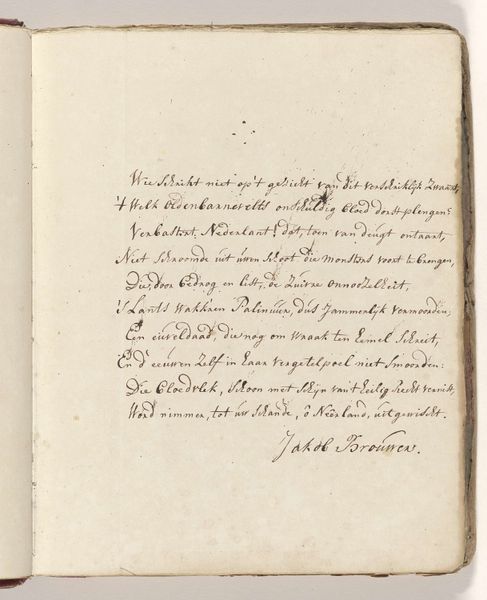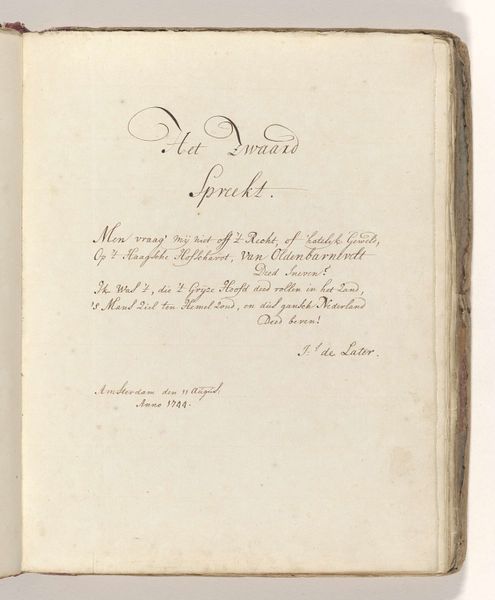
Gedicht op het zwaard waarmee Johan van Oldenbarnevelt in 1619 zou zijn onthoofd Possibly 1744 - 1748
0:00
0:00
drawing, paper, ink
#
drawing
#
dutch-golden-age
#
paper
#
ink
#
calligraphy
Dimensions: height 275 mm, width 220 mm
Copyright: Rijks Museum: Open Domain
Here we see Johannes Haverkamp’s poem written in 1744, a meditation on the sword used in the execution of Johan van Oldenbarnevelt in 1619. This work brings to the fore questions about justice, sacrifice, and collective memory. Oldenbarnevelt, a leading statesman, was executed for treason, a moment that remains a contentious event in Dutch history. Haverkamp’s poem grapples with the emotional weight of this execution, transforming the sword into a symbolic object of both grief and national identity. The poem laments the tragic end of a figure seen as a champion of freedom, questioning the very act of his execution. Consider how Haverkamp uses vivid and sorrowful language to explore the themes of injustice and national loss. The emotional depth of the poem invites us to reflect on how historical events continue to shape collective identity and moral consciousness.
Comments
No comments
Be the first to comment and join the conversation on the ultimate creative platform.
